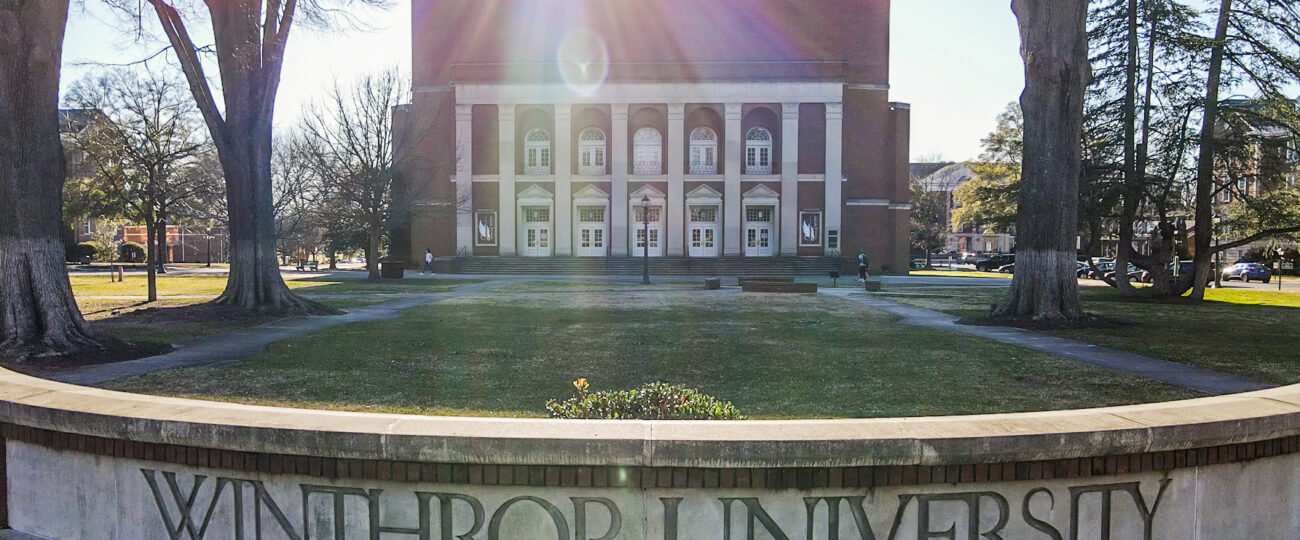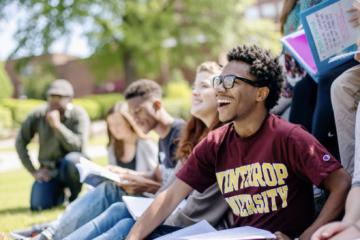On Feb. 22, Winthrop interim president George Hynd announced another COVID relief fund to the student body.
In December of 2020, Winthrop University received approximately two and a half million dollars from the Coronavirus Response and Relief Supplemental Appropriations Act (CRRSAA). The national Office of Postsecondary Education and the federal Department of Education have stated that the funding can only be given to students who are attending Winthrop during the spring of 2021 and are legal U.S. citizens/permanent residents. Graduate degree-seeking students are also eligible, which is different from the previous semester’s emergency funding.
When the CRRSAA was passed in December, the federal government allotted over eighty billion dollars to postsecondary education institutions across the United States. In January, an additional $21 billion was announced as the Higher Education Emergency Relief Fund (HEERF).
However, these billions of dollars can only help the postsecondary students who are actively enrolled. As of October 2020, millions of college students nationwide have had to leave school in order to work full time or to care for those with health concerns. According to the National Student Clearinghouse Research Center (NSCRC), almost a quarter of the United States’ incoming freshmen students have deferred their enrollment since the beginning of quarantine. Public universities – like Winthrop – have reported an average of a 10% decline in their student populations.
Community colleges have had an 18% decrease in their incoming freshmen population nationwide, which puts low-income and rural students at a huge disadvantage financially. In rural areas, Internet access is not widely available, and job opportunities may be limited due to a lack of resources. Even though these areas are historically some of the lowest income-generating areas, over half of the United States’ community colleges are centered in rural communities.
With the decrease in community colleges and universities alike, the United States’ economy will ultimately suffer in the long run. The Georgetown University Center found that graduates with at least a bachelor’s degree earn approximately $950,000 more during their lifetime than their peers who only have a high school diploma. Combining this discrepancy in pay with the economic impact a global pandemic has, countless Americans will find themselves under the poverty line.
Regardless of the area in which students live, the transition to socially distant learning puts millions at a disadvantage. At-home Internet services are expensive and could be out of budget for many college students and their families. Local library services were closed nationwide for the majority of 2020, which meant that students could not access the resources their communities normally provide. Even if students were able to routinely access public Wi-Fi, those connections may be weakened by other students, leading class Zoom meetings to crash and causing students to miss parts of the lesson.
Students who have dropped out of school during the pandemic are immediately impacted by this decision. Their credit scores are being impacted by student loans that they might have never gotten the chance to use. Paying these loans off during a time of limited employment can directly cause families to not have enough financial resources to provide for their children.
If emergency funding for postsecondary education had come sooner, the decision to discontinue education might have been different for the students who had no other option. Low-income students, students from rural areas, and minorities have all been put at an academic disadvantage by the COVID-19 pandemic. While emergency funding is a blessing for so many students, countless of their peers may have been able to continue their education if the federal government had prioritized the United States’ school systems from the get-go.
For Winthrop students, the deadline to apply for the CRRSAA funding is March 10. To learn more about the funding, students are encouraged to contact Miranda Knight (knightm@winthrop.edu) for information or additional resources.
If anyone is interested in donating additional funding to the student emergency fund, please contact giving@winthrop.edu for information about donation and volunteer opportunities.
CRRSAA funding application: https://bit.ly/34ItlGe
Photo by Olivia Esselman




